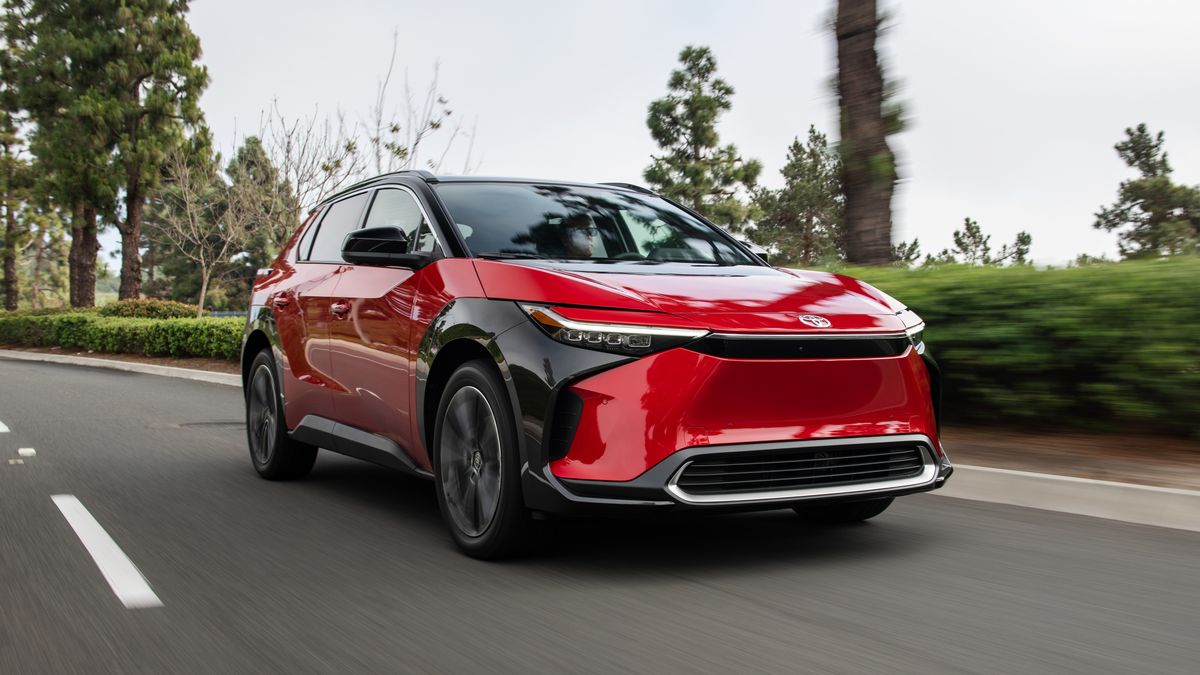2023 Toyota bZ4X
2023 Toyota bZ4X

HIGHS
Generous standard connectivity features, practical interior, peppy acceleration off the line.
LOWS
All-wheel drive costs extra, regenerative braking isn’t aggressive enough to allow one-pedal driving, real-world range isn’t up to snuff.
VERDICT
The bZ4X is a solid contender in the growing field of EV SUVs, but some rivals are more exciting on the road.
BY AUTHOR NAME
Overview
What’s New for 2023?
EV Motor, Power, and Performance
Range, Charging, and Battery Life
Fuel Economy and Real-World MPGe
Interior, Comfort, and Cargo
Infotainment and Connectivity
Safety and Driver-Assistance Features
Like several other Toyota models, the bZ4X will come standard with a suite of driver-assistance features including pedestrian and cyclist detection, lane-keeping assist, and automated emergency braking. For more information about the bZ4X’s crash-test results, visit the National Highway Traffic Safety Administration (NHTSA) and Insurance Institute for Highway Safety (IIHS) websites. Key safety features are likely to include:
- Standard automated emergency braking with pedestrian detection
- Standard lane departure warning with lane-keeping assist
- Standard adaptive cruise control
Warranty and Maintenance Coverage
Toyota matches what its competitors offer, but it provides above-average coverage when it comes to included maintenance. Likewise, its electrical component warranty is an industry standard.
- Limited warranty covers three years or 36,000 miles
- Powertrain warranty covers five years or 60,000 miles
- Electrical components are covered for eight years or 100,000 miles
- Complimentary maintenance is covered for two years or 25,000 miles
